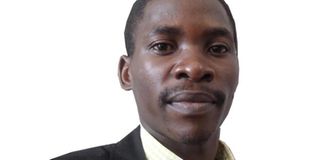Prime
Rejecting servanthood is rejecting freedom fighting for public good

Adventino Banjwa
What you need to know:
- When the President rejects his position as a public ‘servant’ and an ‘employee’; the alternative position he chooses to occupy, that of a ‘freedom fighter’, raises even more questions.
- Whose ‘freedom’ is he fighting (or did he fight) for? If this ‘freedom’ transcends the ‘self’ to include others (all Ugandans); then the notion of ‘servanthood’ becomes unavoidable – even if this was to be done on a voluntary basis.
Following President Museveni’s speech on the 31st NRM party anniversary in Masindi, a serious debate emerged regarding the nature of the relationship between leaders and the led. The key question appears to be whether or not elected leaders like the President are ‘servants’ and ‘employees’ of all the people in a society like Uganda.
In his remarks, President Museveni challenged those who think he is their ‘employee’ or a ‘servant’. “I hear some people saying I am their servant” he said. “I am not a servant of anybody. I am a freedom fighter…” adding “I am fighting for myself, for my beliefs. That’s how I come in. I am not an employee. If anybody thinks he gave me a job he is deceiving himself.” These remarks did not settle well in different social spheres of our society. In the mainstream media, many Ugandans have attempted to forcefully remind the President of his ‘right position’ as the current head of state, that is, as a ‘servant’ of all Ugandans.
This newspaper’s editorial of January 29, went even further to contextualise this servanthood in the case of Uganda (where Mr Museveni, despite forcefully obtaining state power in 1986, has been vying for power through elections since 1980) as well historicizing servanthood from a wider perspective of the state and the ‘social contract’. On social media, Ugandans are digging deeper into the archives highlighting major discursive contradictions between the above remarks and previous ones, for example in the inaugural speech of 1986 where Mr Museveni argued that government officials like him should be “servant[s] of the people”.
What all this signals is that these remarks are problematic in nature, and that many of us were shocked to hear such words from ‘our’ top civil servant. But what exactly is the problem with these remarks? First of all, as indeed many responses to the remarks have clearly pointed out; we all know that civil servants (including the President) are not voluntary workers. We, Ugandans, employ and pay them to deliver on public goods and services we deem necessary in running our common affairs. I do not think there are ‘alternative facts’ to this.
Second, when the President rejects his position as a public ‘servant’ and an ‘employee’; the alternative position he chooses to occupy, that of a ‘freedom fighter’, raises even more questions. Whose ‘freedom’ is he fighting (or did he fight) for? If this ‘freedom’ transcends the ‘self’ to include others (all Ugandans); then the notion of ‘servanthood’ becomes unavoidable – even if this was to be done on a voluntary basis. Fighting for anyone’s ‘freedom’ presupposes fighting for (and hence serving) their interests, many of which may be shared.
Minus ‘servanthood’, ‘freedom fighting’ excludes anyone beyond the ‘self’ (though ‘self’ in this case can include family members and one’s close associates). Therefore, ‘freedom fighting’, if fused into public good, always involves ‘servanthood’. In this case, rejecting ‘servanthood’ is at the same time rejecting ‘freedom fighting’ for public good. This may sound a strange way of looking at the remarks but actually it is to simply project the statement that “I am fighting for myself, for my beliefs.” as affirmative. Yet this highlights an even bigger problem. If such an utterance came from an amateur politician; the public may have consoled itself by thinking that such a politician may have spoken out of ignorance of what it actually means to be a ‘head of state’.
This cannot be the case after over three decades in politics. But even then, ideally, (emphasising ‘ideally’ due to commonplace abuse of language); what people think partly informs what they say. And what they say partly informs what they do. That’s why it is always important to carefully pay attention when people speak. Especially when so-called leaders speak.
The fact that the above remarks came from a senior politician in part implies that much as attempts to remind such a person of what we think his position is in our society are a positive step; the futility of these attempts is manifest in their inability to challenge – and consequently change – the actually existing relations implied in the act of rejecting ‘servanthood’.
I think the remarks should serve as a wakeup call to all of us who think President Museveni is wrong. Our worry should not be that he is so wrong in his understanding of the relationship. We should instead be worried of our failure to recognise – and use – our collective power to re-assert our collective and individual forms of agency regarding the nature and form of this former colonial project (now ‘ours’) that is Uganda.
[email protected]




